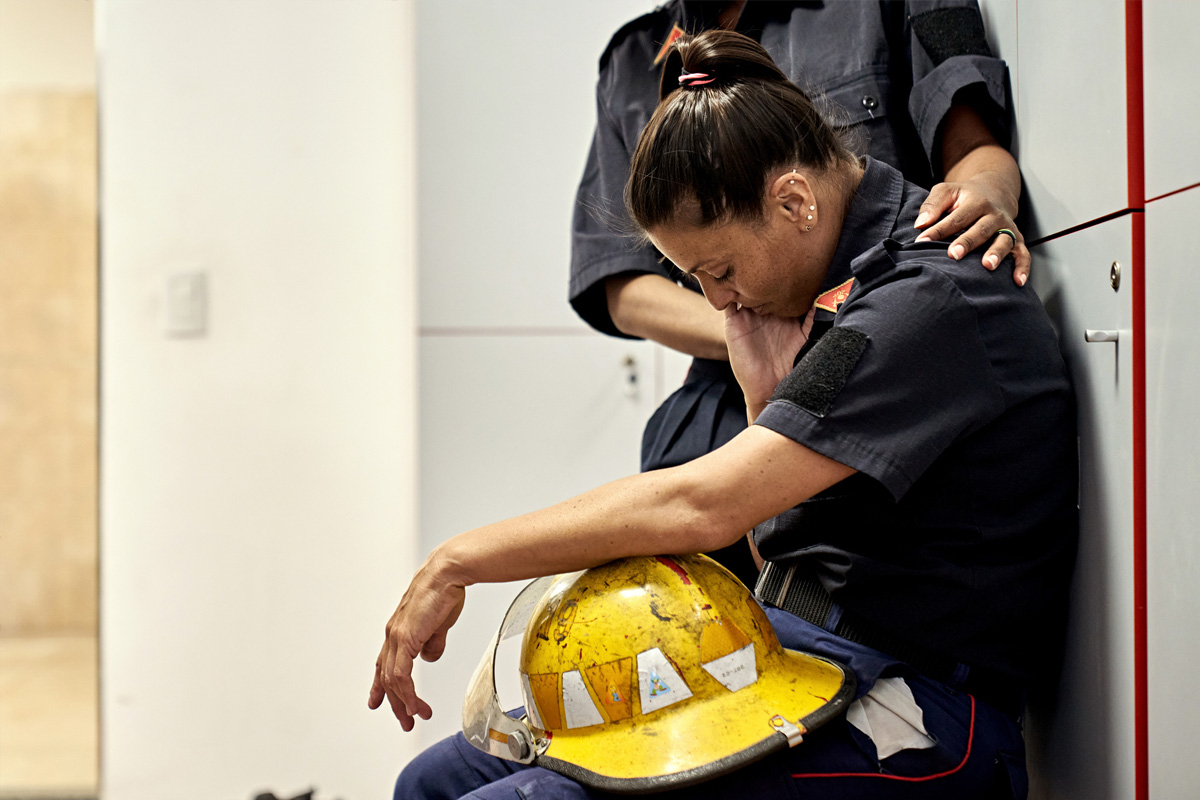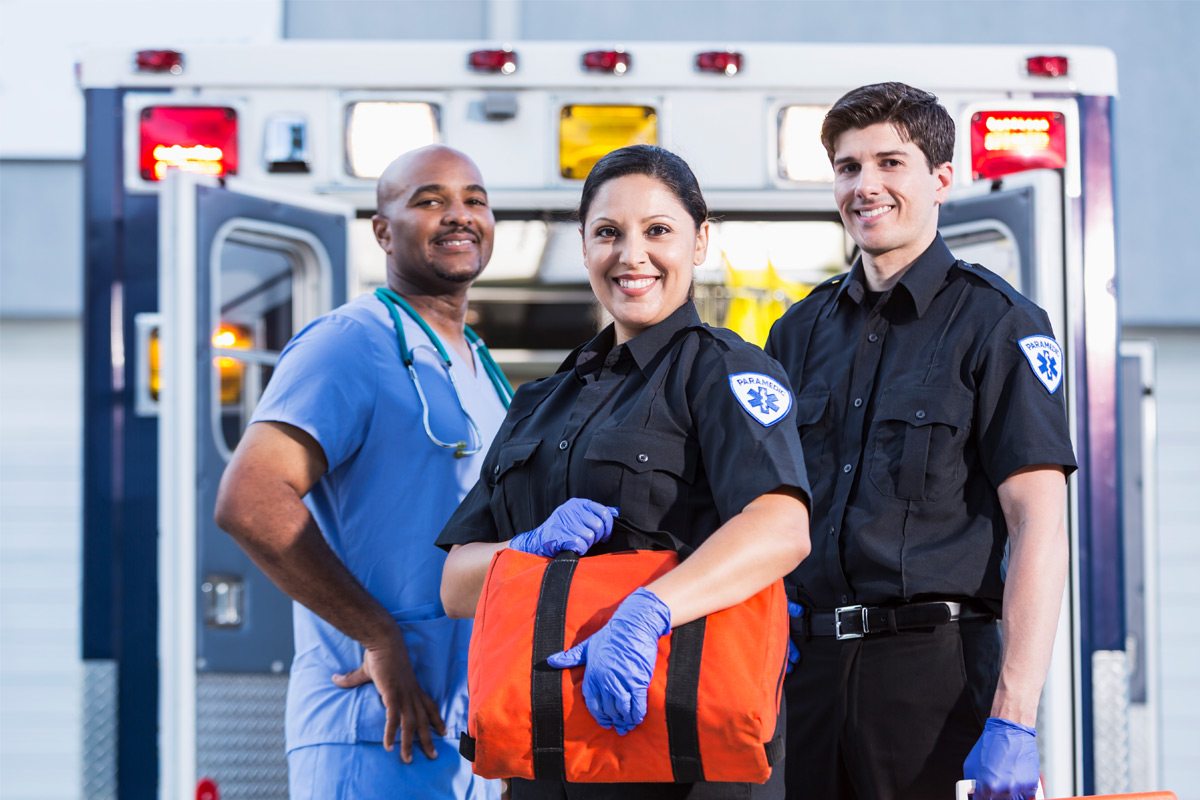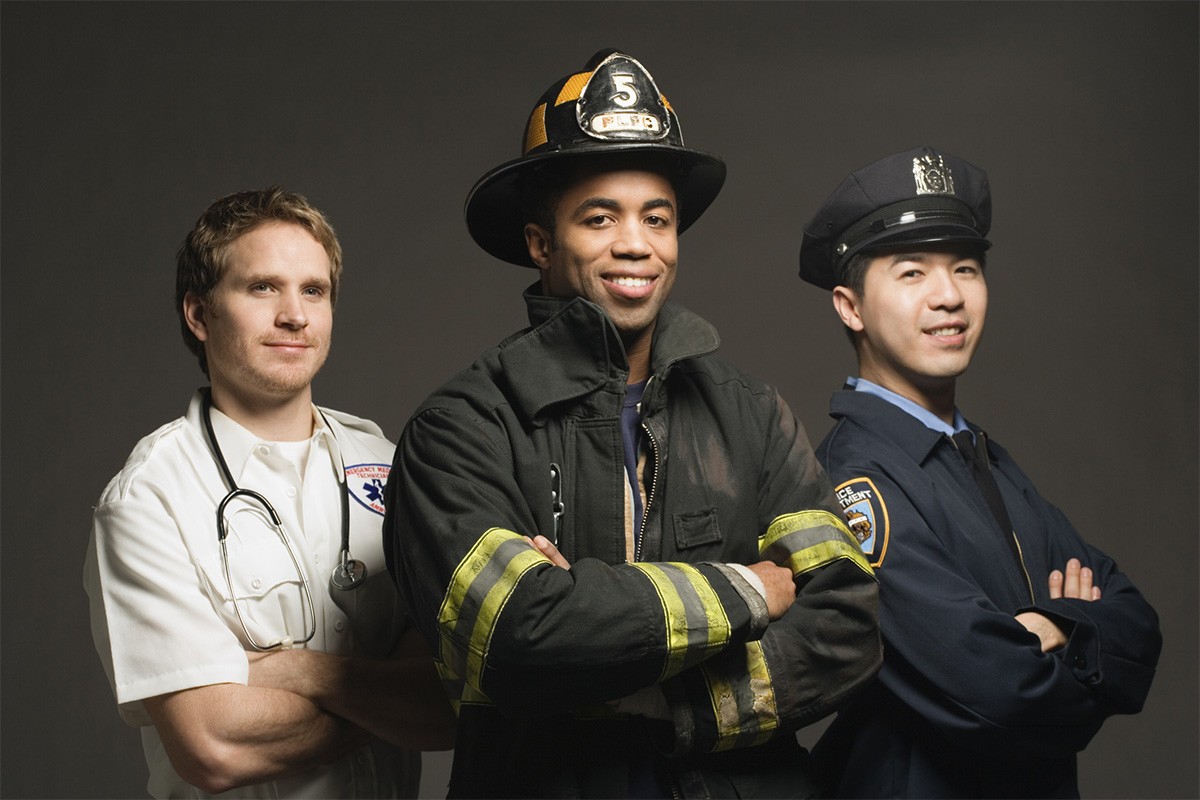Content Warning: This article includes mentions of death, depression, post-traumatic stress disorder, and suicide.
Life a first responder can be rewarding, but it can also be difficult. First responders encounter traumatic events and life-threatening situations on a regular basis. Not only is it a physically demanding job, but it can also take a toll on one’s mental health.
When compared to the general population, first responders are more at risk for mental illness. In a 2018 report published by the Ruderman Family Foundation, emergency medical services professionals, firefighters and law enforcement officers experienced heightened levels of depression, post-traumatic stress disorder and suicidal thoughts, and they were more likely to die by suicide than in the line of duty.
According to data gathered by First H.E.L.P., an organization seeking to reduce the stigma surrounding mental health for first responders, there were 252 reported suicides by first responders in the U.S. in 2019. More recently, four police officers who served during the insurrection at the Capitol on Jan. 6, 2021 later committed suicide.
Whether you’re a first responder or an administrator who works closely with them, it’s important to educate yourself about mental health services for first responders. Let’s work together to support those who serve our communities.
Seeking Counseling
Routine sessions with a mental health professional can help tremendously, especially when the counselor has previous experience working with first responders and can tailor their strategies to fit their clients’ specific needs.
How Employers Can Help
Despite the high rate of first responders suffering from mental health challenges, a stigma remains for those seeking mental health care. Among first responders, fears surrounding confidentiality or negative career impact may cause them to not seek help.
What can employers of first responders do to address this situation? In an article published by Kaiser Permanente, the author outlined several strategies to help first responders get the help they need, including:
- Examining shift schedules and helping employees prioritize rest and sleep.
- Investing in mental health awareness and stress management training.
- Speaking directly about mental health and creating a culture of acceptance and support.
Online Resources
There also are numerous free online resources to help first responders manage their mental health. Here are some to get started:
- First Responders and Disaster Responders Resource Portal: The Substance Abuse and Mental Health Services Administration (SAMHSA) published this web portal with tips for managing stress and links to several online trainings for specific topics, including a course about the unique stressors faced by law enforcement officers.
- First Responders and Recovery Workers Responding to a Traumatic Event: This resource published by Voices Center for Resilience includes important reminders for first responders and their leaders about managing their physical health, workloads, and stress, and knowing the warning signs for vicarious trauma, compassion fatigue, burnout, and PTSD.
- Emergency Responders: Tips for taking care of yourself: This webpage, published by the Centers for Disease Control and Prevention, includes tips for how to identify burnout and secondary traumatic stress during emergencies, guidance for developing a “buddy system” to help monitor your stress along with a coworker, and important reminders about self-care.
Helplines
Helplines are another option for first responders when in need of counseling, especially during times of crisis. Many mental health helplines are available 24/7 and connect the caller with resources during a crisis.
The 988 Suicide & Crisis Line – previously the National Suicide Prevention Lifeline at 1-800-273-TALK (8255) – can now be reached while anywhere in the U.S. by calling or texting 988. Additionally, the Crisis Text Line can be reached by texting “HOME” to 741741, via web chat on crisistextline.org, or through WhatsApp by messaging 443-SUP-PORT.
Others may prefer to use helplines for specific groups, including the following:
Conclusion
For first responders, it’s their job to help people on the worst days of their lives. We owe it to them to support them as well.
In First Responders: Behavioral Health Concerns, Emergency Response, and Trauma, a report published by SAMHSA, the author noted that:
“To improve the behavioral health of the first responders, a cooperative effort is needed between organizational leadership and coworkers to establish a work environment that provides adequate training and ensures the resiliency and health of first responders by protecting them from overwork and excessive stress and supporting them in seeking help when needed.
“As more first responders discover the resilience they can access through others, and particularly their peers, they become better able to maintain their own behavioral health while addressing the myriad challenges of disaster response.”
Here at Columbia Southern University, we have the privilege of providing education options for first responders of all types, including emergency managers, EMS administrators, firefighters, law enforcement officers, and more. To learn more about our online degree programs, visit our website.
If you or someone you know is in immediate danger due to a mental health crisis, call 911 or go to the nearest emergency room. The following resources are also available for crisis situations:
- 988 Suicide & Crisis Line: call or text 988.
- Crisis Text Line: text “HOME” to 741741.






